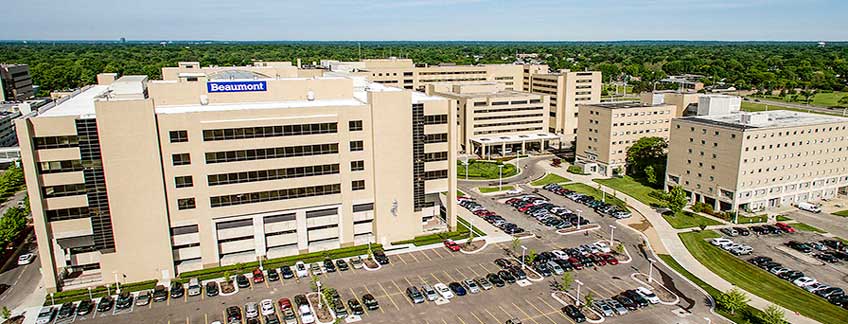Immunization study conducted with Beaumont Hospital
Photo Courtesy of Beaumont.org
The students of OUWB worked with Beaumont hospital to test immunities to COVID-19.
With COVID-19 being the focus of so many studies, some Oakland University William Beaumont School of Medicine faculty members stepped up to help in an immune study at Beaumont Hospital.
The study began last March, when COVID-19 first started spreading in Michigan. The first blood drawn to test for COVID-19 and antibodies took place mid-April. This process had to be quick, although extensive. There were 370 people helping the process.
When Beaumont started its immune study, it was the largest of its kind. Beaumont took a different approach with its study. Instead of studying who’s being infected — the study monitored what antibodies people had in their blood.
At the time, Beaumont had just gotten new equipment that was going to help do large scale serology testing. This would allow them to look for antibodies.
Rami Homayouni, professor of foundational medical studies, and a data analysis team, helped make sure that all the data being received was clean. Homayouni was able to provide information on what was actually being seen with the data.
“To carry out a study and make meaningful conclusions from it, you have to make sure that the data is valid and correct,” Homayouni said.
The study also contained a questionnaire, one question was about masking. It allowed people that were affected by COVID-19 to answer if they were wearing a mask, and if so what kind.
The study was opened up to anyone that worked at Beaumont, there were about 22,000 people that got tested several times to see if they developed antibodies.
“We found that there was a fair number of people who did… Some of them knew that they had COVID, others did not,” said Matthew Sims, director of infectious diseases research at Beaumont Health and professor of internal medicine and biomedical sciences at OU. “So we had over 700 people who we found that had asymptomatic COVID[-19].”
Another important finding of the study was that nurses were more likely to test positive, and since the study was being taken at Beaumont, they were able to keep track of the spread better within their own workplace.
“Of course, the frontline workers are most at risk of getting infected because they are face to face with patients,” Homayouni said.
Masks were proven to play a significant role in protecting people. If you don’t wear a mask, you’re more likely to contract COVID-19. If you wear a surgical mask, you’re even less likely to get it, and if you wear a N95 mask, you’re least likely to get it. Even if you do contract COVID-19 with an N95, you’re more likely to be asymptomatic. Also, people with more exposure were more likely to get it.
“I’m much more afraid of the person I don’t know has COVID[-19] than the person I do know has COVID[-19],” Sims said. “If I know they have COVID[-19] I can take precautions, I can be sure to wear the right kind of mask and everything.”
Overall, the study showed that a lot of what people are currently doing, wearing masks and social distancing, is working. The study will continue to add data pertaining to the COVID vaccine as well.






